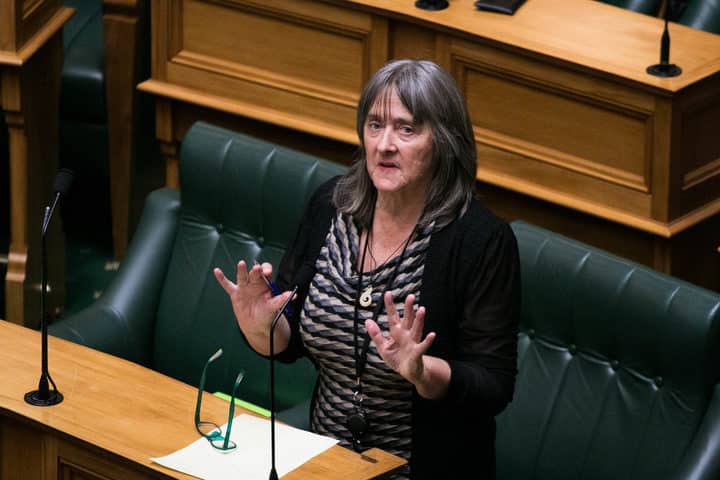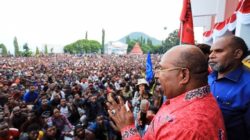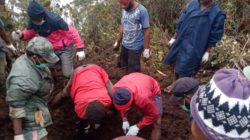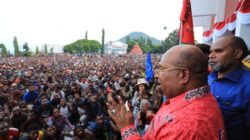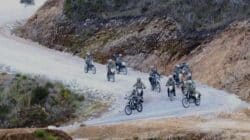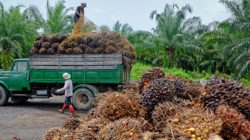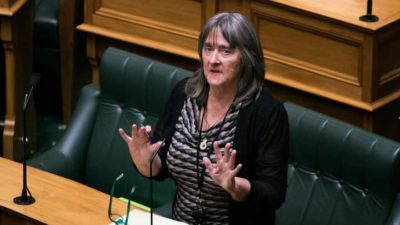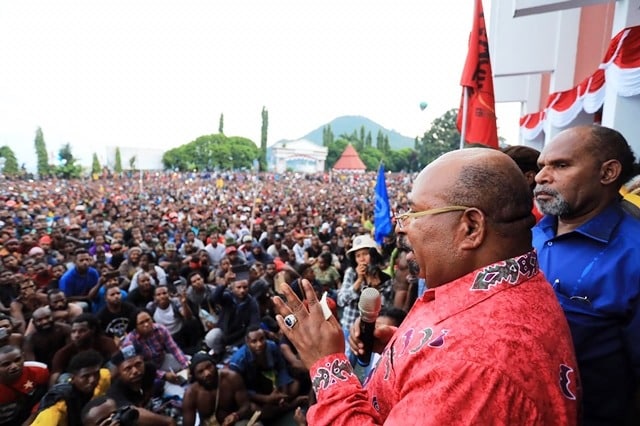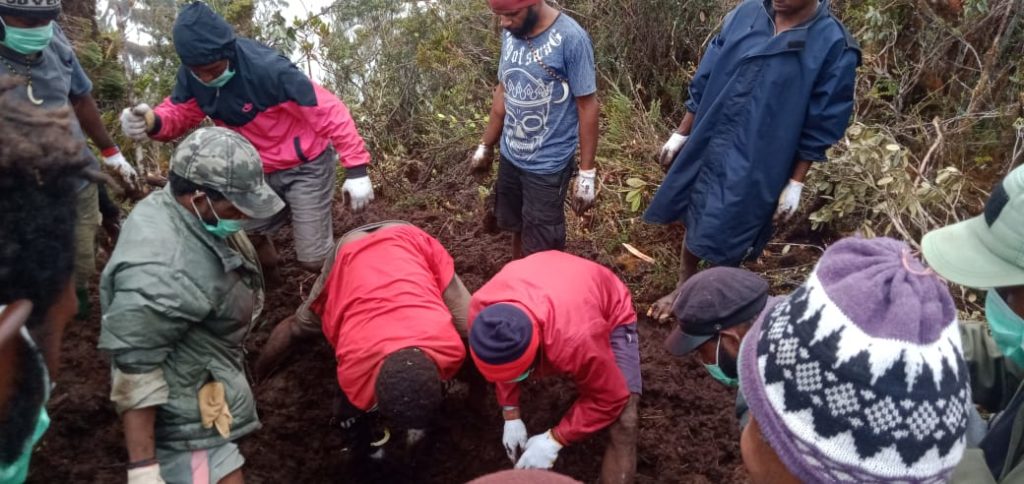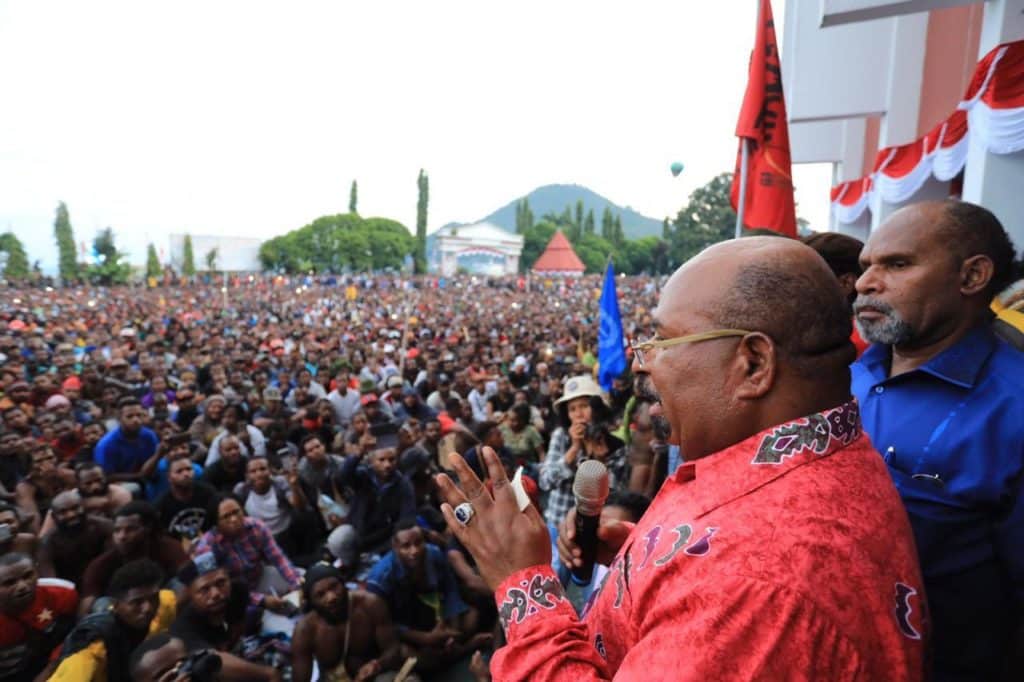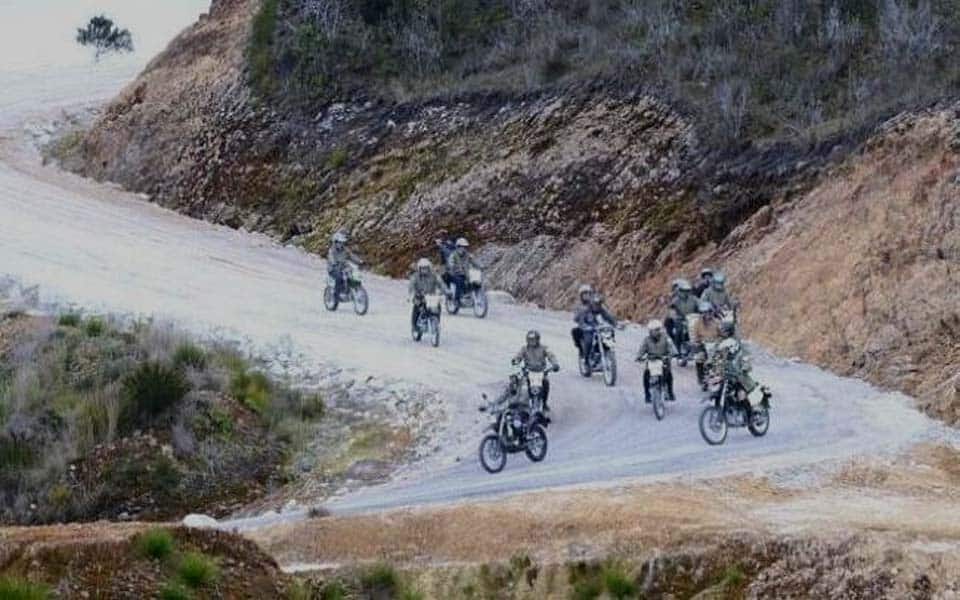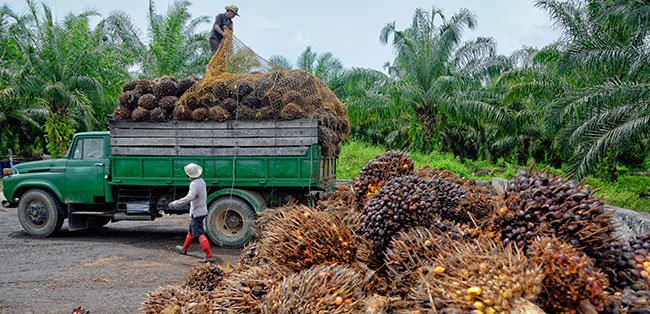
Jayapura, Jubi – During World War I from 1915 to 1918, Turkey systematically massacred the Armenian population in that country. Armenians were becoming victims of series of deportation, expulsion, torture, massacre and starvation. Most of the Armenians were expelled to Syria and the desert, and they died of hunger and thirst.
The massacre of the Armenian race continued from 1920 to 1923 by the government’s opposition the Young Turks who had similar idea of racial purity. Half million Armenians were estimated being killed during the period of 1915 – 1923.
The Armenian massacre in Turkey within these two periods could no be separated from the role of Turkish media since 1915. During the First World War, the Turkish media were engaged in ideological propaganda for the establishment of New Turkish Empire, which was called Pan-Turanism comprising Anatolia to the Central Asia. The idea of Pan-Turanism was once constructed only for Turkish origins. The media propaganda was the primary justification on this genocide within these two periods.
Turkey and its dark periods were only one of the examples of how the media get involved in propaganda that consciously threats one community as lower than others. The practice of structural racism also occurred during the ancient Greek and Rome eras, as well as the era of African race slavery in XVI century. Imitating the Turkish arrogance, Nazi practiced the structural racism against the Jews. After the end of the Second World War, the structural racism persisted on a massive scale in the South Africa, over the American natives in America and Aborigines in Autralia, and the last two are still happening until now. Over all these practices of structural racism is very significant in building public opinion that allows it to be happened.
The mass media is like double edged-sword. At one side it could promote the establishment of an egalitarian and equal social condition among various social and political differences. At the other side, it is a powerful propaganda tool to maintain the structural racism that ultimately justifies State’s Violence in a sustainable manner by majority group towards minorities. In this term, the minorities are placed in the lower position in the culture and intellectual.
Violation of Ethics, Maintaining the Structural Racism
The structural racism by mass media was also happening in Papua. On Wednesday, 27 May 2015, for example, the National News Agency Antara broadcasted a report titled “Regional Military Commander Seeks to Free the Soldiers Taken Hostages” by Evarukdijati. Then, many online media cited this report. merdeka.com, for instance, published a very unethical headline “Rebels Said Two Indonesian Soldiers Taken Hostages Already Cooked,”
The news, however, was very misleading and spreading the racist opinion against indigenous Papuans. The news was leading public opinion on the practice of cannibalism that put the indigenous Papuans as the lower culture and less intellect community, such as indicated by several websites including bersamadakwah.com, beritacenter.com, jakartagreater.com, wartapriangan.com, and pojoksatu.id.
Later the National News Agency Antara published a report “Indonesian Military Commander Declined Pair Soldiers Taken Hostages” on 28 May 2015, which automatically confirmed the former invalid and inaccurate report.
The Article 6 of Press Law No. 40/1999 of C section stated the national press performs its role to develop public opinion based on information that is accurate, valid and true.
Thus, the report “Regional Military Commander Seeks to Free Indonesian Soldiers Taken Hostages” failed to meet the criteria of accurate, valid and true therefore it harmed the indigenous Papuans. While, the Indonesian Military Commander in “Indonesian Military Commander Declined Pair Soldiers Taken Hostages” confirmed that the hostage was NEVER HAPPENED. So the report’s accountability and accuracy is to be questioned.
The report has violated several articles of Journalistic Code of Ethics by the Press Council as follows:
Article 3
Indonesian journalists must constantly examine the information, report a balance news, do not combine the fact and judging opinion, as well as to apply the presumption of innocence.
The report “Regional Military Commander Seeks to Free Soldiers Taken Hostages” was clearly imbalance because only referring to one source information that is Komepa Sub-district Military Command through the Regional Military Commander mixing with the fact and judging opinion though the sentence “both soldiers were already cooked”. The reporter who reports the news should be doubted to examine the information.
Article 4
Indonesian journalists not to report false news, defamation, sadistic and obscene report.
The report “Regional Military Commander Seeks to Free Soldiers Taken Hostages” is false and slander news because it was later denied by Indonesian Military Commander in “Indonesian Military Commander Declined Pair Soldiers Taken Hostages”. In addition, the first report could be considered sadistic because it contains the sentence “Both Indonesia soldiers were already cooked” to direct public opinion to cannibalism practice.
Article 8
Indonesian journalist not to write or broadcast news based on prejudice or discrimination against someone on the basis of differences in ethnicity, race, color of skin, religion, sex and language, not to degrade the weak, poor, sick and people with mental or physical disability.
The report “Regional Military Commander Seeks to Free Soldiers Taken Hostages” was broadcasting based on prejudice or discrimination against indigenous Papuans and degrading their dignity through the sentence “both soldiers were already cooked” that were cited by other media. This sentence was dragging public opinion that indigenous Papuans still practiced cannibalism.
Article 10
Indonesian journalists to immediately revoke, revise and correct invalid and inaccurate news and apologize to the readers, listeners and/or audience.
Although the Indonesian Military Commander has denied about the hostages based on the prior report, but the National News Office Agency didn’t immediate revoke, revise and correct the mistaken and inaccurate report or apologize to the readers, listeners and/or audience.
Seeking Legitimacy of Violence in Papua
In the early of 2000, a professor of Massachusetts Institute of Technology, Noam Chomsky came up with his opinion about “public opinion control”. He came up with two types of democracy in history, that are a democracy in which people were actively participated and a democracy in which people were manipulated and consciousness control. According to Chomsky who also known as the father of modern linguistics, propaganda in democracy was applied as a tool of totalitarian state and mass media is the main vehicle to convey propaganda in the United States. His analysis towards Creel Commission (actually named the Public Information Committee) established by President Woodrow Wilson. During the First World War, Wilson placed his fellow George Creel, a journalist and editor of Rocky Mountain News to change the public mind in the United States that previously being passive to be hysterical so that the United States could gain a public legitimacy to involve in the First World War.
The same practice was adopted under George Bush’s administration to legimate the involvement of the United States in the Gulf War in Iraq. Chomsky found that mass media and public relation industry has been used as propaganda to achieve the public supports for the United State to involve in the war in Iraq. At the end, he concluded the public relation industry in the twentieth century has been greatly influenced by Walter Lippmann theory of “Democracy Audience” which regards people as “ confused group” that need to be directed instead of empowered. The public relation industry in the United Stated and many developed countries turned out to set their focus on “control public mind” instead on informing something that has to be a public right of information.
In Papua, control on media and public opinion is priceless for the country. It is so priceless therefore the sentence “both soldiers were already cooked” must be only a code in the Indonesian Military – a code that shouldn’t be conveyed to public – that should be published to the public through mass media. It was proven that sentence later was interpreted in different way by public and Papua Police that later sent a platoon of Mobile Brigade to Enarotali. Aware or not, the media and public relation industry has been involved in legitimatizing the practice of sustained violence in Papua and to legitimize the State’s will to involve as many as security forces in Papua through Structural Racism.
Journalism is too precious to be controlled by an institution and to degrade on community. (*)
Victor Mambor
Chairman of the alliance of independent journalists in West Papua



